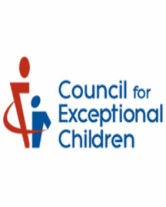Step 4: Determine the Need for Content vs. Format Adaptations
Teachers who make content adaptations also need to meet current localand state education standards. A teacher may consider content adaptation only when the student's individualized education program (IEP) has noted that the curriculum is inappropriate for him or her. In cases in which the curriculum is considered appropriate for the student, adaptations may focus on format, not on content, since content adaptations can affect the fulfillment of curriculum standards.
In some cases, the IEP meeting may address the degree to which state standards and assessments can be modified. Based on the outcomes of the IEPmeeting, the teacher may need to decide which parts of the curriculumcontent the student will be required to learn and what will constitutemastery of the important course content.
When content adaptation is neither possible nor desirable, it is stillcrucial to identify the essential elements of the content (i.e., the criticalconcepts) that the student must learn. To help you decide what formatadaptations should be made, answer the following strategic questions:
- What are the critical concepts that must be mastered over thecourse of the year in this subject? (For example: "What are the 10most important critical concepts that every student should learn inthis seventh-grade social studies class?")
- What type of information must be mastered in each unit to ensurethat the course ideas are mastered? (For example: "For each unit inseventh-grade social studies, what five concepts do students needto know and what five questions should they be able to answerabout these concepts?")
- How will students be expected to demonstrate mastery of the critical content in each unit and at the end of the course? (For example: "Students will need to define each concept and provide at leastone example of each concept. Students must state orally or in writing the essential answer to each of the five unit questions andmust answer multiple-choice, matching, and true/false test questions about information related to the five unit questions.")
In cases in which content is judged appropriate for a student, theinformation about critical concepts should be used as a guide to adapting the format of the curriculum to assist the student in mastering content. Format adaptations are used to enhance or compensate for mismatches between the presentation or design of the materials and the skills and strategies of the student. In format adaptations, the information in the materials is not altered.
More on Adapting L.A., S.S., and Science Materials for the Inclusive Classroom.













